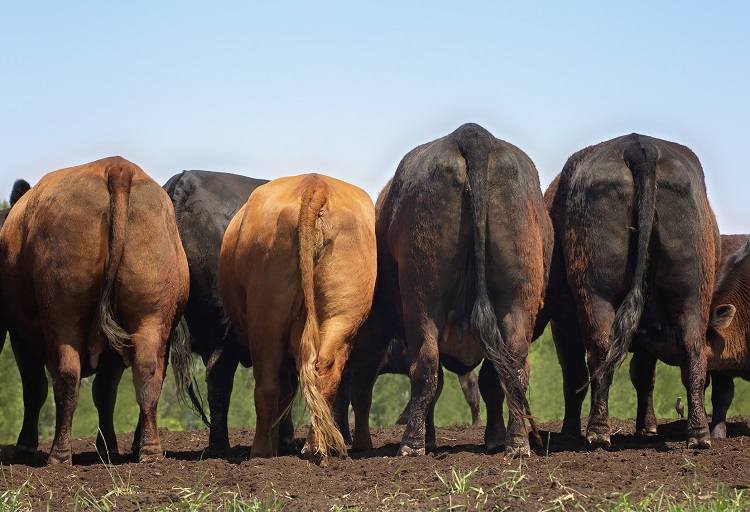
The European Union is dedicated to local weather neutrality by 2050, which means it plans to realize internet zero greenhouse fuel (GHG) emissions for Member States. To get there, the Fee has set an middleman goal to be reached by 2030: to chop internet GHG emissions by no less than 55%, in comparison with 1990 ranges.
Now the Fee is needs to set one other middleman objective: a 90% internet GHG emissions discount by 2040.
However not solely has the proposed discount been criticised for being unrealistic (the EU might not even be on observe to satisfy its 2030 goal), issues have been raised that the brand new objective takes the strain off methane discount in livestock, nitrogen emissions in soils, and dietary shifts amongst customers.
How does the Fee plan to satisfy its new 2040 local weather goal?
From the Fee’s perspective, setting a 2040 local weather goal will assist trade, buyers, residents and governments to make choices this decade to maintain the EU on observe for its 2050 objective.
To realize the proposed 2040 goal, the Fee has laid out circumstances that ought to be met, beginning with an emissions discount of no less than 55% by 2030.
Based on Local weather Motion Tracker (CAT), nonetheless, the EU isn’t but on observe to satisfy this goal. Whereas the analysis group – which tracks local weather motion in 32 international locations liable for 80% of worldwide emissions – described the Fee’s 2040 ambition as an ‘vital step’, it believes ‘speedy implementation’ of insurance policies and measures at Member State degree is ‘essential’ for it to turn into a actuality.
“We might suggest no less than a 62% discount (excluding land use, land-use change and forestry) by 2030 domestically with vital worldwide finance or a far deeper minimize of 93% to make a good contribution to the 1.5˚C restrict.
“The CAT charges the EU’s 2030 goal is inadequate towards each metrics.”
Different circumstances concern the decarbonisation of the power and transport sectors. Meals and agriculture are additionally talked about (the agri-food system is liable for a 3rd of worldwide GHG emissions), however critics concern these subjects have taken a again seat.
Methane omitted from local weather goal textual content
“Agriculture also can play an important position within the transition,” famous the Fee in communication on its 2040 local weather goal. “The sector is essential to make sure meals safety in Europe and with efficient insurance policies that reward good practices and the suitable assist, it could actually additionally assist drive emissions down and supply different important providers reminiscent of enhancing the capability of soils and forests to retailer extra carbon.”
What isn’t talked about within the closing textual content, nonetheless, is any point out of a 30% minimize in non-CO2 emissions from agriculture (methane emissions from livestock and nitrogen emissions from soils).
The omission doesn’t sit effectively with sustainability-focused Altering Markets Basis, who stated “the concept the farming sector can by some means be excluded from slicing its air pollution is flawed…”
Altering Markets believes there’s a ‘compelling case’ to have an bold sub-target for agriculture. “The EU is in concept dedicated to the World Methane Pledge, the place it’s supposed to chop its methane emissions by 30% already by 2030. They won’t be able to realize this with none targets or insurance policies to assist methane cuts.”
For some, the timing of the Fee’s announcement – and ‘watering down’ of its proposal –isn’t a coincidence. Throughout Europe, farmers have been protesting value pressures squeezing the trade.
“Nonetheless onerous the Fee tries to deal with farmers with child gloves, information are cussed issues: our meals and agriculture methods contribute a giant chunk of the EU’s local weather impression,” stated Monique Goyens, director common, European Client Organisation (BEUC).
European farming organisations Copa and Cogeca take one other place, welcoming the selection of dialogue and ‘pragmatic assist lastly retained by the European Fee’. “A dialogue between farmers has lastly been chosen!” famous the farmer and agri-cooperative our bodies.
Fee accused of ‘intentionally ignoring’ hyperlink between food plan and GHG
As to meals, recognition of the position of dietary shifts in decreasing GHG emissions has additionally been dropped (though the position of the meals trade in making wholesome diets a simple and inexpensive selection for customers was retained).
Critics are lamenting the omission, arguing that agriculture and meals sectors have ‘nice potential’ to allow dietary shifts.
“Shoppers are keen to alter the way in which they eat and play their half within the struggle towards local weather change, supplied sustainable, wholesome meals turns into extra accessible and inexpensive,” stated BEUC’s Goyens.
“Now the ball is within the courtroom of the subsequent European Fee, who should urgently mud off the overdue Sustainable Meals Methods legislation and put it on the desk. Such legislation a lot incentivise trade and retailers to raised assist customers within the transition.”
For Dr Milka Sokolovic, director common of the European Public Well being Alliance (EPHA) – which advocates for more healthy and extra plant-based diets – it’s ‘past understanding’ that the Fee ‘intentionally ignored’ the hyperlink between dietary patterns and GHG emissions.
“If we need to be severe on the local weather crises, EU policymakers should regulate meals environments, and make our meals selections wholesome and sustainable by default.”
